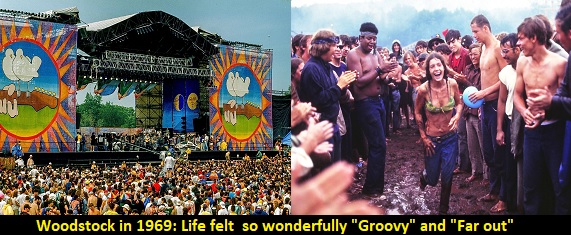Woodstock was a music festival that took place in 1969 and defined our generation. It was a cultural phenomenon that brought together hundreds of thousands of people to celebrate music, peace, and love.
Please click on this link https://www.youtube.com/watch?v=cRjQCvfcXn0 to go to Youtube and listen to Joni Mitchells wonderful “Woodstock” song – even though Joni herself was unable to attend Woodstock!The festival featured iconic performances from artists such as Jimi Hendrix, Janis Joplin, The Who, and many others. The music at Woodstock represented the spirit of the times and became an important part of the counterculture movement of the 1960s.
Woodstock also had a significant impact on fashion, with attendees embracing a bohemian style that reflected their free-spirited attitude. The festival became a symbol of unity and acceptance, with people from all walks of life coming together to enjoy the music and camaraderie.
Despite some opposition from politicians and authorities at the time, Woodstock ultimately became a symbol of peace and love. It showed that when people come together for a common purpose, they can create something truly special.
Overall, Woodstock was more than just a music festival – it was a cultural event that defined a generation. It showed the power of music to bring people together and inspire positive change. Let’s remember the spirit of Woodstock and strive to create more moments of unity and peace in our world today.

